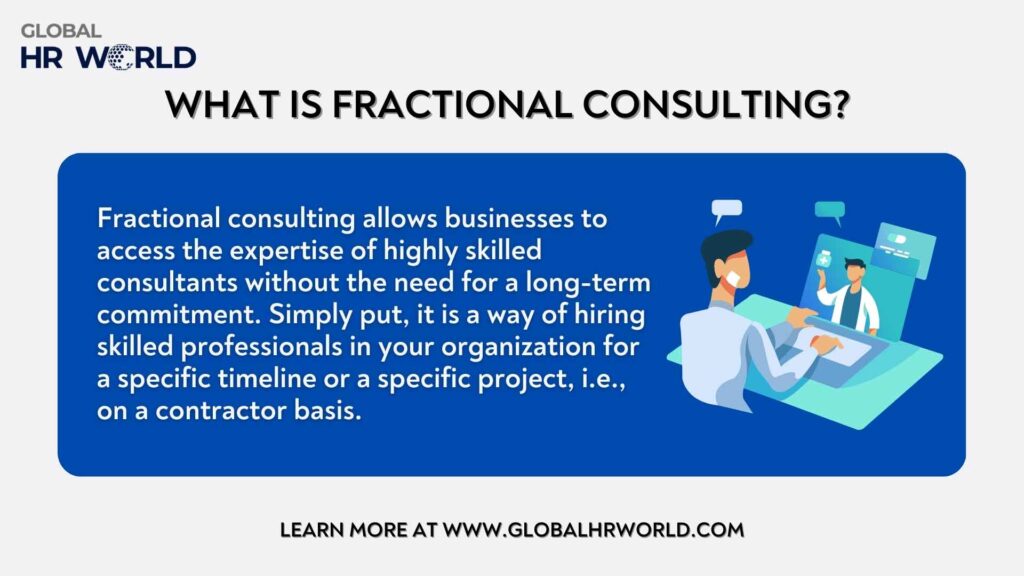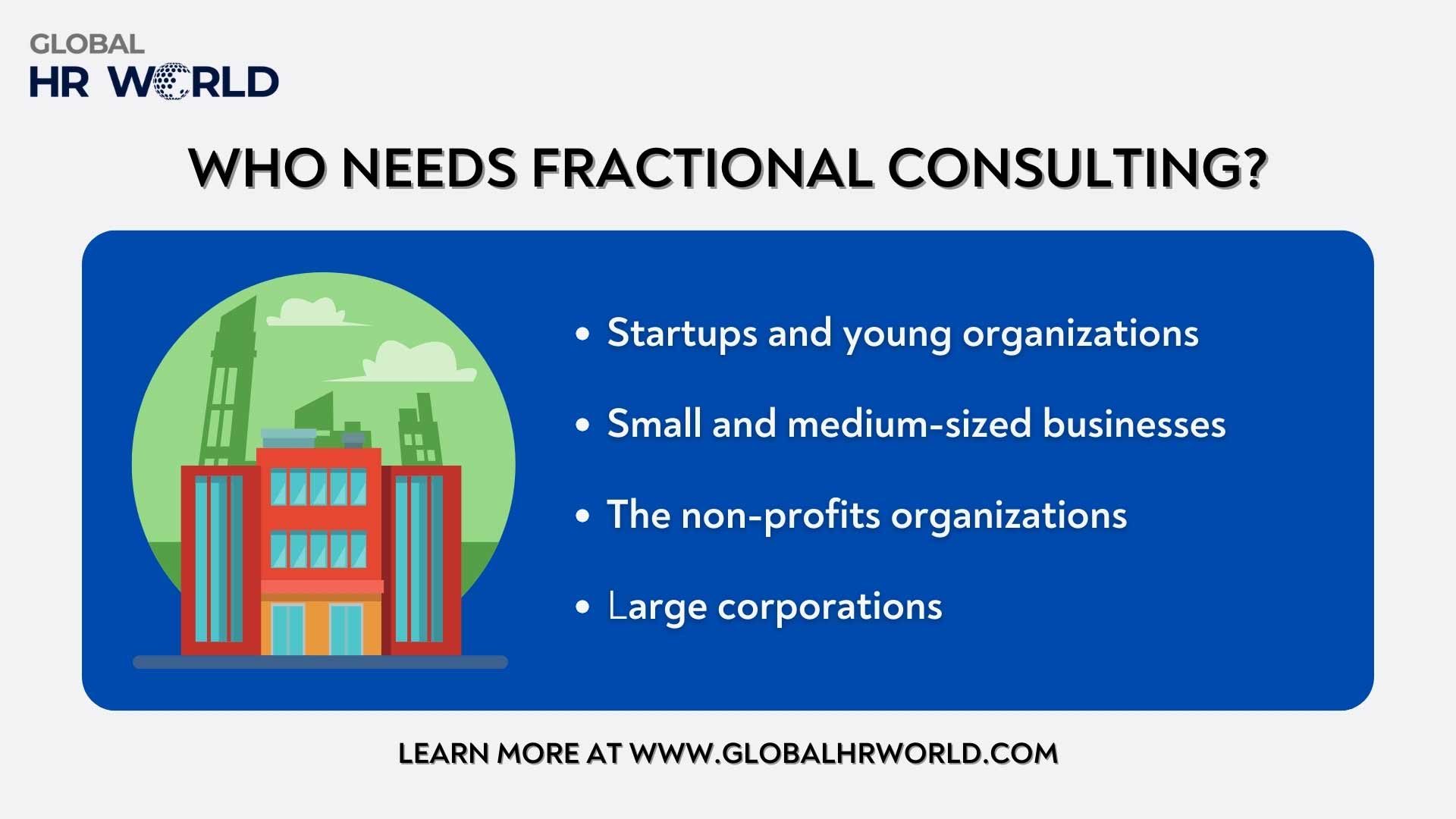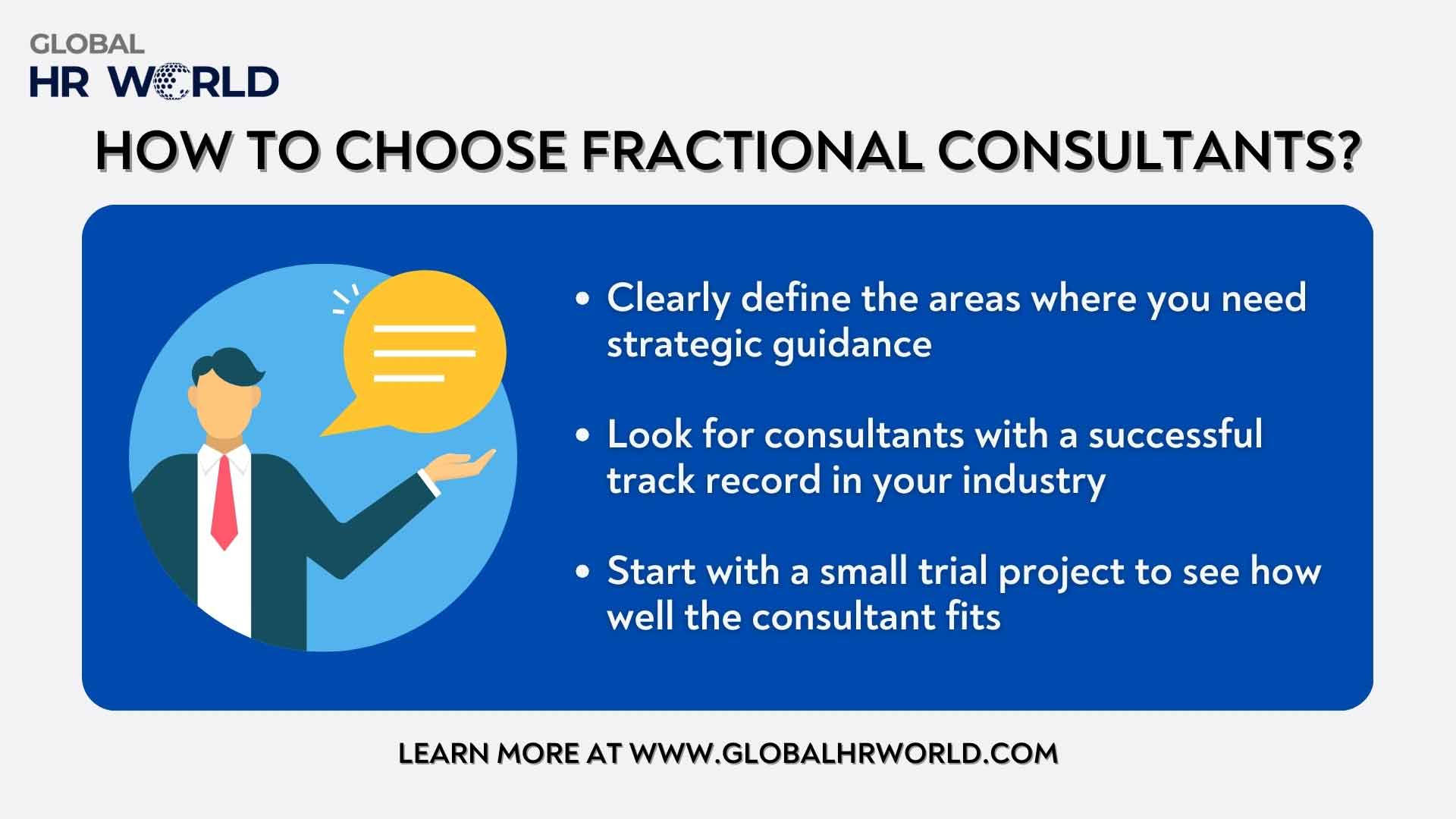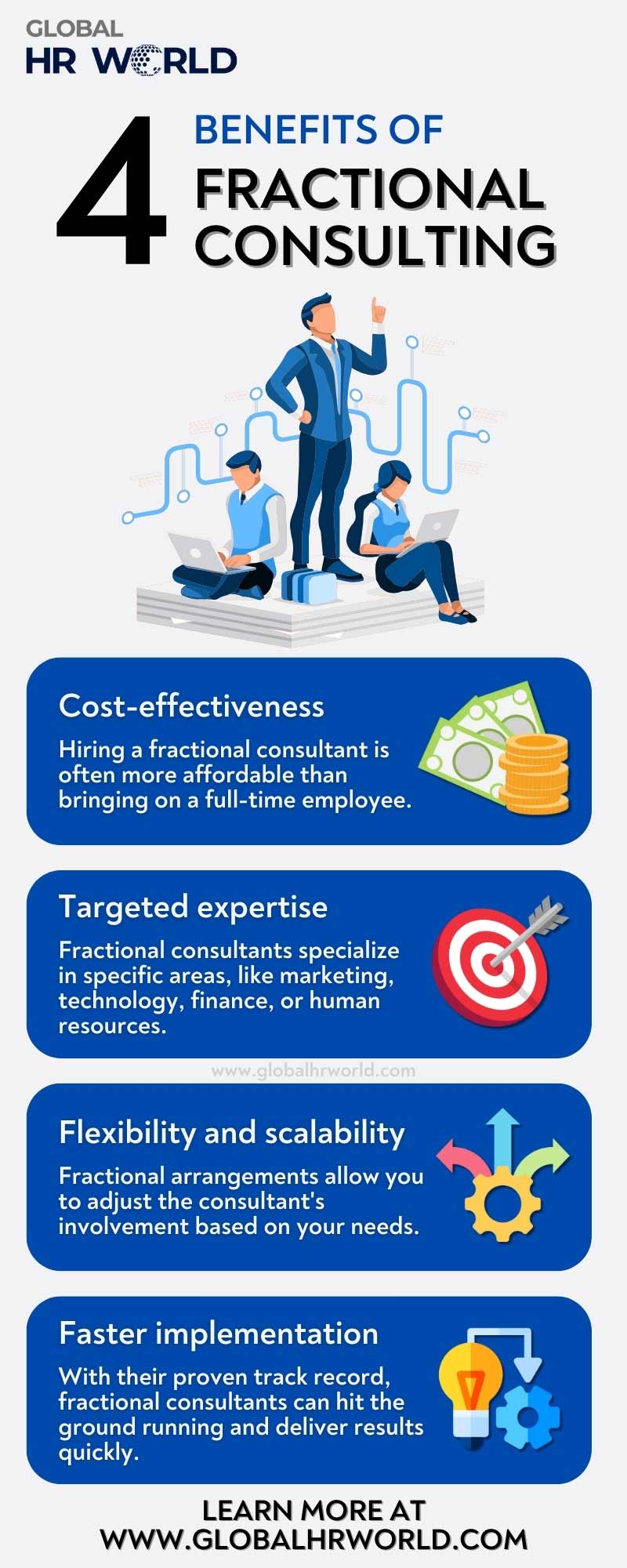These figures are a testament to the increasing dependency of the corporate ecosystem on consultancy services to enhance their bottom lines. But committing to a full-time employee in business is not feasible or desirable in this changing landscape. Here comes the benefits of fractional consulting! Have you ever come across the term fractional consulting? Or the fact that organizations are now hiring consultants on a part-time or project basis rather than having them as full-time employees? Why are they known as “fractional”? Well, it has seen a rise in popularity over the past few years. You can do it, too, if that’s what your organization needs.
To learn more, keep reading!
What is fractional consulting?
Fractional consulting allows you to access the expertise of highly skilled consultants without the need for a long-term commitment. In a nutshell, it is a way of hiring skilled professionals in your organization for a “fraction”. Fraction cause they will be hired for a specific timeline or a specific project on a contractor basis. Fractional consultants are generally with deep experience in a specific field. They can work with businesses on various projects or even freelance. They can work in fields like strategy development, process improvement, technological transformation, marketing, sales, human resources, or finance.

Fractional consulting opens the door for organizations to get help on critical projects without derailing focus on core business activities. Consultants can quickly provide
- a) strategic perspectives,
- b) technical skills, and
- c) subject matter expertise
to fill gaps and help drive key initiatives forward. The fractional approach gives organizations options to scale consulting talent up or down as needed. Fractional consulting offers a compelling solution for businesses seeking to bridge the gap between in-house expertise and external resources.
Example of fractional consulting
Suppose an organization is going through a phase where they need help with marketing. But due to some reasons they can’t justify a full-time marketing director. In such a situation, they can hire a fractional consultant specialized in marketing. The consultant now will develop strategies or run beneficial campaigns with the commitment of a full-time salary and perks. Similarly, here are a few fractional roles:
- fractional CFO,
- fractional CMO,
- fractional COO,
- fractional CSO,
- fractional marketing consultant,
- fractional HRM, and so on.
To be honest, the possibilities are limitless. Like, you can hire a fractional sustainability consultant who can give your business the strategic direction needed to integrate sustainable practices without you draining the full-time budget of a C-suite executive. Isn’t it great?
Who needs fractional consulting?
Fractional consulting is a valuable option for a wide range of businesses, including:
- Startups and new organizations can gain access to senior leadership guidance without the high cost of full-time executives.
- Small and medium-sized businesses may address specific challenges or fill temporary skill gaps without a long-term commitment to their organization.
- The benefit of cost-effectiveness can make non-profits go for fractional consulting in areas like fundraising, social media management, human resources, etc.
- Even large corporations can use fractional consultants as a supplement to existing teams with specialized expertise for specific projects or departments.

Benefits of fractional consulting
Now comes the “why” of it.
1 – Flexibility
By now you may have grasped the benefit of flexibility. Let’s face it, committing to a full-time employee in business is not always feasible or desirable. The needs are always changing! With fractional consultants they can work depending on the needs of the business. They can work freely and remotely or on-site. This flexibility helps businesses to adapt to changing circumstances and quickly respond to market demands.
2 – Cost-effectiveness
This also comes with the benefit of cost-effectiveness. Fractional consulting is obviously a cost-effective option for employers than hiring a full-time employee. Businesses can get the expertise of a consultant without the need to pay for resources like employee benefits, training, office space, and commitments, for that matter. Making it an attractive option for employers operating on a low budget.
3 – Targeted expertise
In addition to its flexibility and cost-effectiveness, fractional consulting offers other advantages. For example, fractional consulting often bring people with more experience and expertise in specific fields than full-time employees. This means businesses can access specialized knowledge and insights that may not be available in-house. Moreover, they can provide a fresh perspective and offer new ideas and approaches to help businesses grow and improve.
With all these also comes a few limitations with fractional consulting. Let’s dive in!
Challenges you may face with fractional consulting
Bringing a fractional consultant into the team can feel like adding a new puzzle piece. You want them to fit seamlessly, but it might take some time for everyone to adjust. I mean, if you are bringing in a marketing expert for just a few days a month, your full-time employees might not immediately know how to fit them into ongoing projects. It is also important to make sure the consultant feels included in team meetings and updates so they stay informed and engaged, just like your regular employees.
- It is difficult to determine who has the right skills and experience to meet a business’s specific needs.
- Fractional consultants may misunderstand the job role provided to them, and as a result, they fail to deliver what was initially required from them.
- They, as new to the organization, are not aligned with the organizational culture and values.
- The organization may discover that they have given them inaccurate or low-quality information.
- Also, attempting to force your fractional consultants to learn everything about their new jobs within a short time frame is a great way to ruin their chances of success.
- Bringing a fractional consultant might also mean facing some resistance from the existing team. People might feel insecure about how this new role affects their own.
- Last but not least, there can be logistical and technological challenges in providing the necessary tools and resources.
So, how to choose the right fractional consulting for your organization?
Hiring a fractional consulting executive can be a game-changer for business owners be it small or big. But to do so, you must, keep in mind the three following things.

Let’s discuss this in detail.
Tip no. 1 – Identify your needs
Before even looking for a fractional consultant, you need to clearly define the areas where you need strategic guidance. Knowing your specific business needs will help you find the desired consultant with the right skills.
Tip no. 2 – Look for experience
Look for consultants with a successful track record in your industry. Job portals are a great place to look for ones that fit your needs. You can check their previous roles, their portfolio and the projects they have done. You can also speak with their past clients to gauge the consultant’s effectiveness. Based on your needs, then, you can choose a consultant working in the relevant industry.
Tip no. 3 – Start with small
If possible, start with a small trial project to see how well the consultant fits with your team and your business needs. From these trial projects, understand how the consultant approaches the task at hand. You need to make sure their approach aligns with your organizational culture and workflows.
To sum up
Fractional consulting can bring fresh perspectives and tailored solutions to drive organizational success. So, if you’re looking to level up your business game, embrace the power of fractional consulting and watch your business soar to new heights of competitiveness and success.
Infographic

Knowledge Check!
Frequently Asked Questions (FAQs)
What is fractional consulting?
Fractional consulting allows businesses to access the expertise of highly skilled consultants without the need for a long-term commitment.
Is fractional the same as freelance?
In fractional consulting, a specialized individual is hired in an organization on a contractor basis. Freelancers, on the other hand, are self-employed, can work in various fields and are not committed to any single employer.
Why hire fractional consultants?
Fractional consultants can work freely and remotely or on-site, depending on the needs of your business. This flexibility helps businesses to adapt to changing circumstances and quickly respond to market demands.



